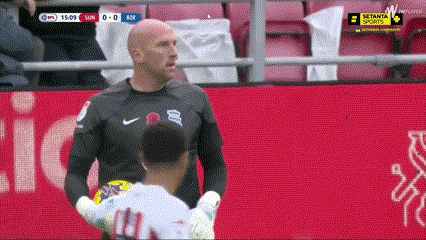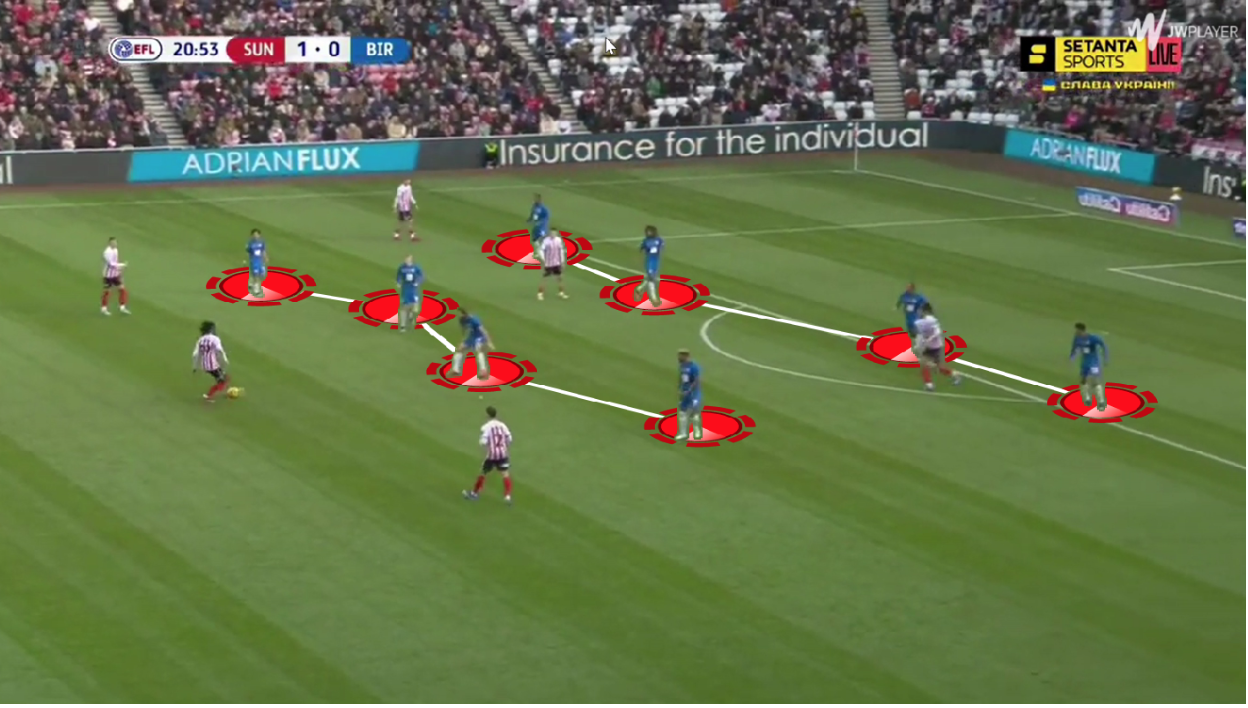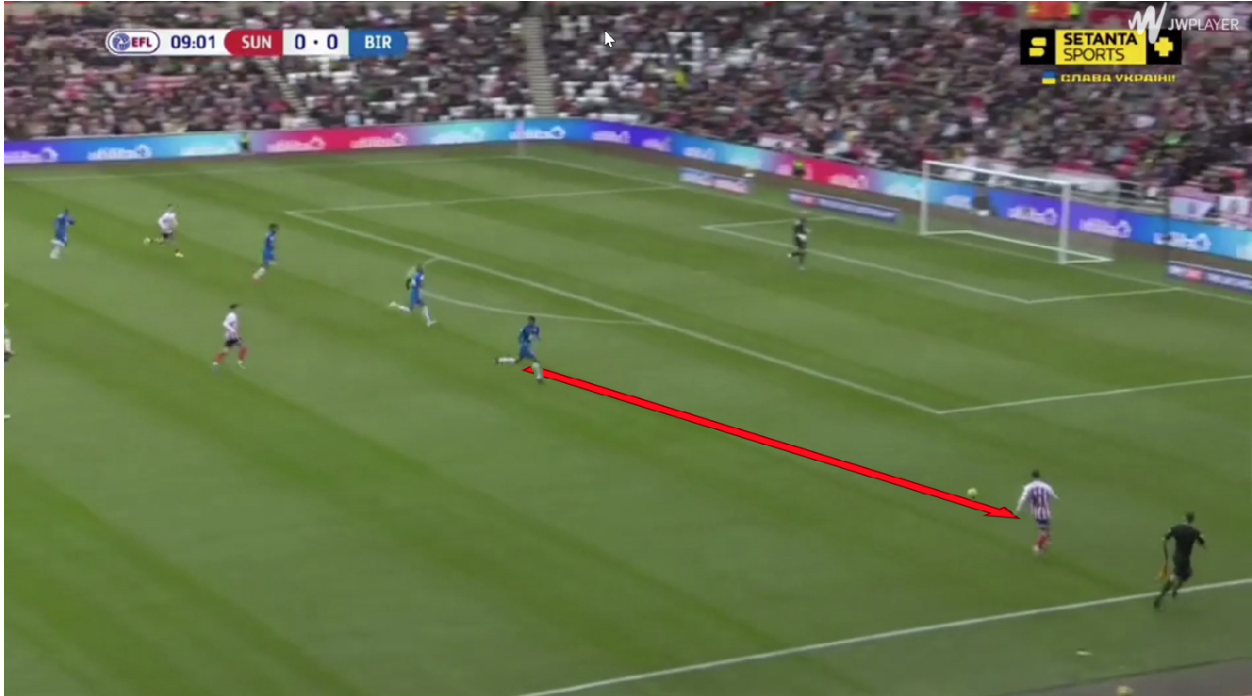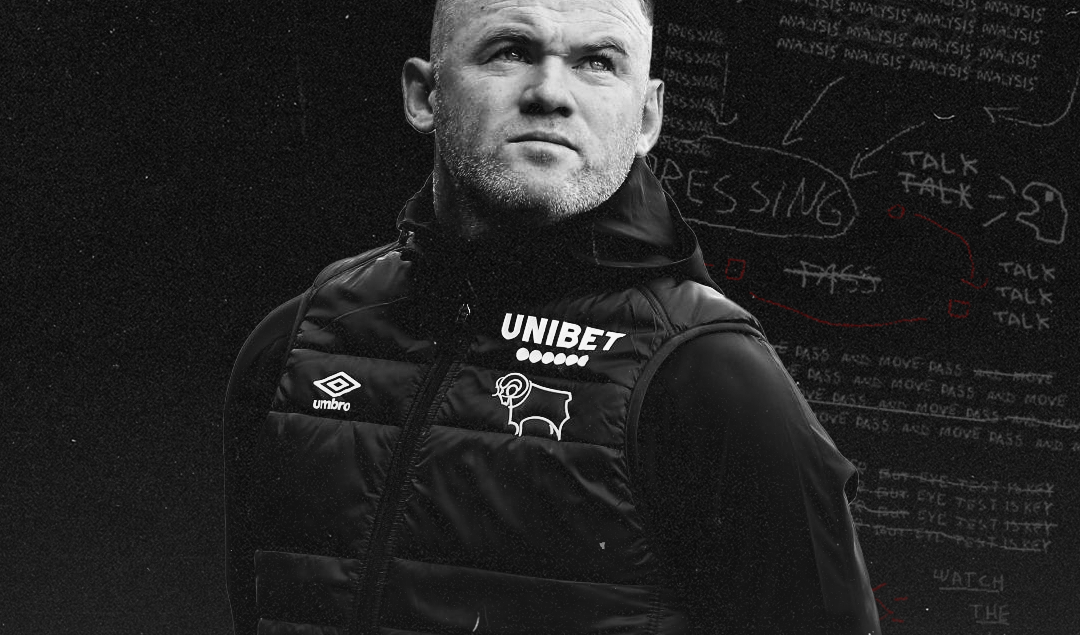How Wayne Rooney Took Birmingham City from 5th to 20th
Wayne Rooney was appointed Birmingham City manager with the Blues fifth in the EFL Championship following two consecutive wins under previous manager, John Eustace. The club hoped to move away from Eustace’s more pragmatic style and into a new era of “no-fear football.” It was a decision unpopular with Birmingham supporters at the time and their run of two wins in 15 matches under Rooney saw him replaced by Tony Mowbray after 13 weeks in charge.
After overseeing a 2-2 draw vs. Swansea courtesy of Jordan James’ last-second goal, Mowbray’s second match at the helm saw them edge Hull City 2-1 in the FA Cup via Koji Miyoshi’s 93rd-minute winner. They will travel to Stoke City at the weekend for his first away match at the helm before traveling to Leicester City in the cup and following that up with league matches against Middlesbrough and West Brom.
The appointment of Mowbray gives Birmingham a chance at success this season, but that’s little consolation for Rooney, whose stint at Birmingham has damaged his reputation. He and the Birmingham board need to identify what went wrong to make sure neither will make the same mistakes in the future. Here we take a look at the reasons it all went so wrong.
Tactical Naivety
Under Eustace, Birmingham were sensible in the build-up phase and went long if necessary. When they play from the back they weren’t attempting to bait the press and would instead play into the fullbacks quickly. Their build-up aimed to get the ball in behind to Jay Stansfield or into a winger’s feet so they could drive inside.

Under Rooney, this changed and their build-up became slower with more passes into midfield during the early phases. This was a problem as the ball would often be played into Ivan Sunjic who, uncomfortable on the ball, struggled to receive under pressure. The centre-backs were also expected to find players between the lines but lacked the technical ability to do so.
Birmingham’s best moments under Rooney came when they went long shortly after a goal kick and combined quickly to get players in behind early. When play stalled they seemed to run out of ideas.
The Role of Ruddy
In Birmingham’s 3-2 loss to Leicester, John Ruddy conceded two long-range one-on-ones. He was put in these situations as a result of the “no fear” mindset Rooney looked to implement at the club.

The first goal came when Leicester countered off a Birmingham set piece where only Sunjic was on the halfway line to defend. This left Sunjic in a 2v1 with two of the best attackers in the league. Once Stephy Mavididi had been slipped through Ruddy was too slow to rush out and looked scared to leave his box, leaving himself prone to a chip.

The second goal came after centre back, Marc Roberts stepped up too high upon Birmingham losing the ball, giving Kiernan Dewsbury-Hall space to run into. This was a trend under Rooney; he wanted his defenders to step into midfield and make tackles.
Like many of the tactical decisions Rooney made in his time at Birmingham City, the cons outweighed the pros. Playing a high line did put Birmingham in better positions to press high up the pitch but the centre-backs lacked the positional sense and athleticism to defend the high line and Ruddy never looked comfortable guarding his goal when the attacker had space to run into before shooting.
Narrow or Wide Defensive Block?
Under Eustace Birmingham defended with a flat and wide block, consisting of four defenders, two midfielders and forward players getting back when there was an opportunity to regain possession. This meant that the fullbacks would be out quickly to stop crosses whilst the centre-backs were still in good positions to head them away.
It also left them open to shots from outside the box but they were usually quick to close these down. Without Kevin Long, who was injured for most of Rooney’s tenure, Birmingham lacked quality box defenders. This meant that they were best trying to stop crosses rather than defend them.

Despite this Rooney insisted on a very narrow 4-4-2 block which meant the fullbacks had to make up a lot of distance when closing down wingers. Rooney’s compact block was better in theory but where Eustace accepted that players like Juninho Bacuna and Miyoshi weren’t capable of providing two-way output for 90 minutes, Rooney expected them to close down spaces and track runners.

Their narrowness caused them problems on transition too, where the large spaces the fullbacks had to cover would allow the opposition winger to take charge of the situation, making it easier for him to beat his man. Eustace found solutions for his players to play at their level whereas Rooney expected them to rise to his – A mistake top players often make when they move into management and one he must learn from if he’s to make it as a coach.
Birmingham conceded 30 goals in 15 games under Rooney and it’s hard to understand why he didn’t attempt to build on the solid blueprint Eustace left him and instead changed the way they tried to defend before he’d made signings.
Ill-advised Tactical Trade-offs
Oliver Burke started frequently under Rooney due to his power and willingness to press high up the pitch. He usually played behind the striker or as part of a front two and this focus on pressing did lead to Birmingham making more tackles in the final 3rd per 90 than they did under Eustace, however, that’s not worth much if it means pushing your talented players out of position.
Miyoshi did excellently in a free role under Eustace but, due to Burke’s inclusion, he was pushed out to the right wing where he was less effective. As well as this, Siriki Dembele struggled to get into the team despite being one of Birmingham’s better players early in the season.
Birmingham weren’t coached well with the ball. The midfielders didn’t know when to show for the ball in the build-up phase and there was little movement off the ball when attacking but the best way to make up for poor coaching is creative players combining high up the pitch. Rooney didn’t let this happen often enough.
Conclusion
Wayne Rooney’s mentality going into the job was strange. His ideas, tactically, weren’t bad, but there was no bedding in period, no sense of pragmatism to get to January and make signings that let him play his way. The press and defensive block would’ve worked with different defenders, but it was important to survive until those defenders could be brought in. Rooney’s impatience did not allow this.
For Birmingham fans, the future looks bright with Mowbray in charge but the thought of what could’ve been had they kept Eustace may haunt a few, including the owners. The Blues sit 20th in the Championship, seven points above the relegation zone and 10 away from the playoff spots, and they’ll be looking to pick up their first league wins since December 13 as they face off against Stoke at the bet365 Stadium on Saturday.
By: @rickyleegriffi2 / Ricky Lee Griffiths
Featured Image: @GabFoligno / Bradley Collyer – PA Images
